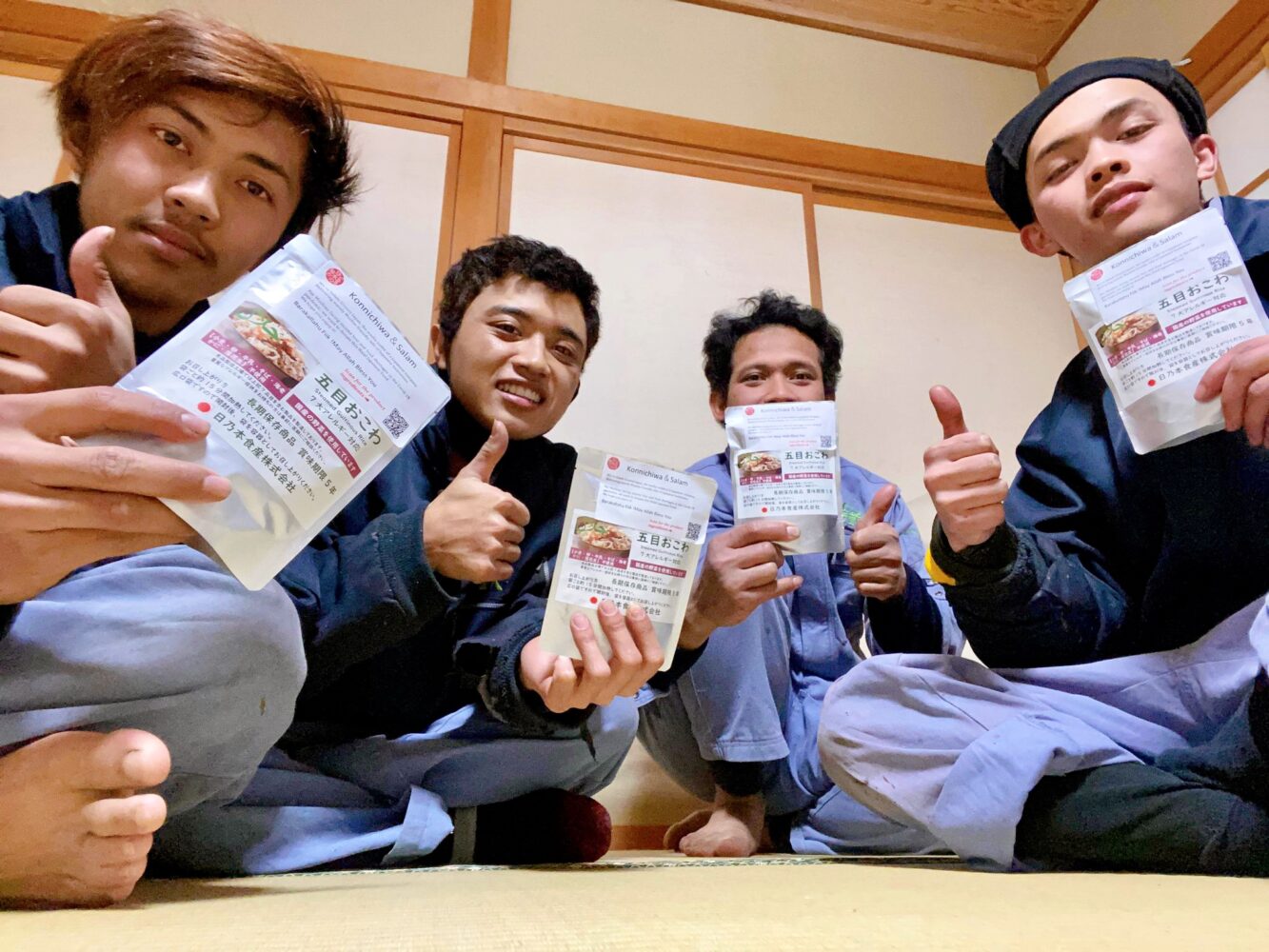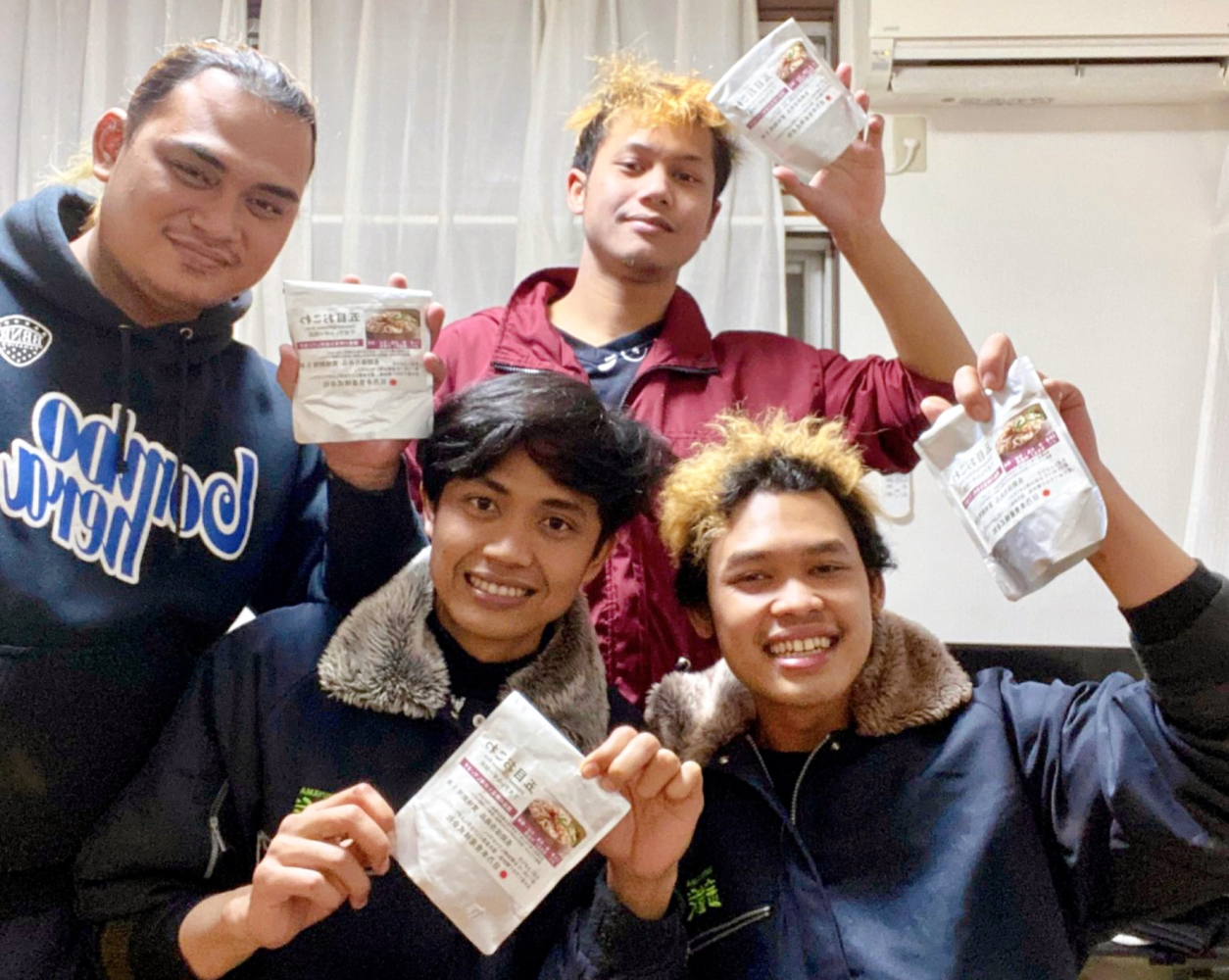Food donation to Indonesian interns at Matsuyama Kozai
Salam and hello!
We at Salam Groovy Japan have been involved in food support for Muslims living in Japan. This time we provided to the Indonesian interns working at MATSUYAMA KOZAI.
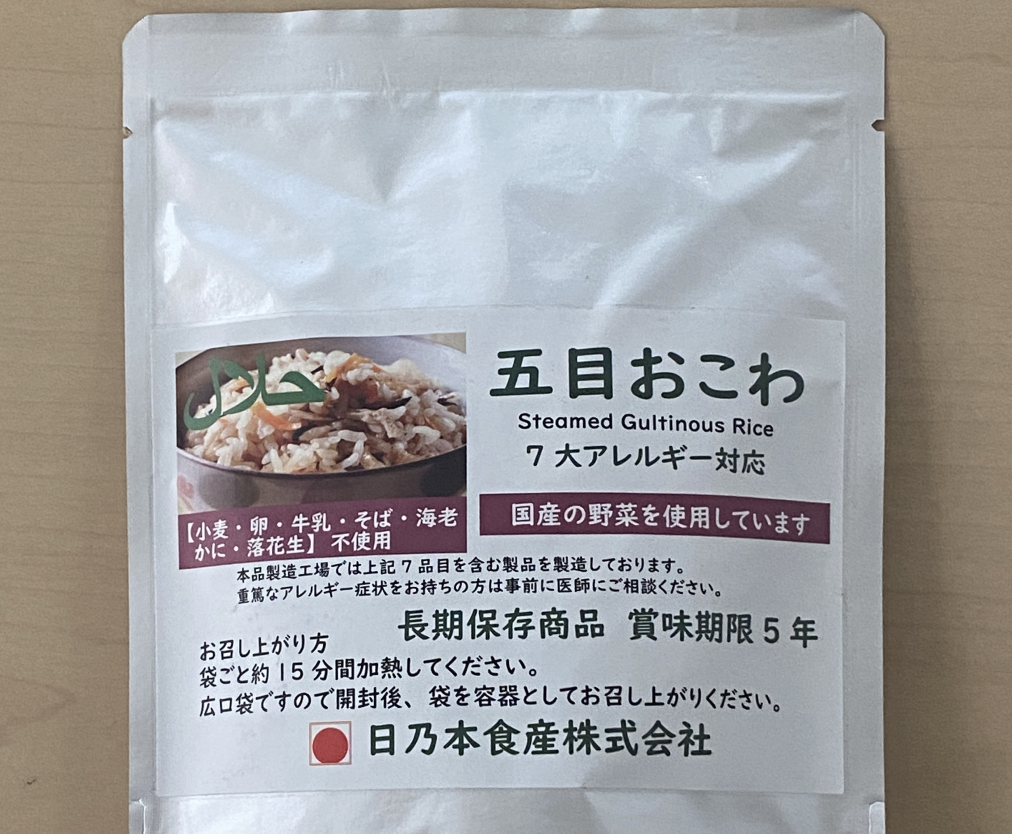
Gomoku Okowa 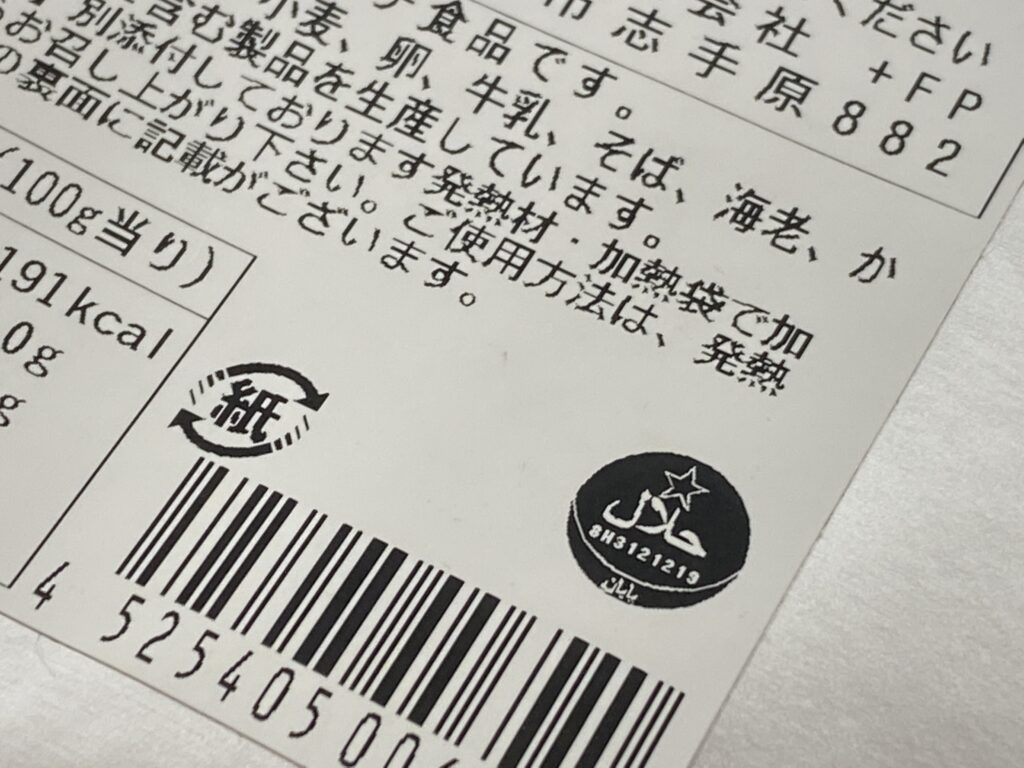
Recently we interviewed President Kougou, owner of the metal fabricating company MATSUYAMA KOZAI. As we learnt about the business and its deep relations with Indonesia, we also found out that the company currently has Indonesian Muslim (Islam believers) interns.
As we know it can hard to find Halal food in Japan (a country with few Muslims), we donated 37 portions of Gomoku Okowa. A Halal Japanese emergency food by Hinomoto Shokusan that can be stored for 5 years.
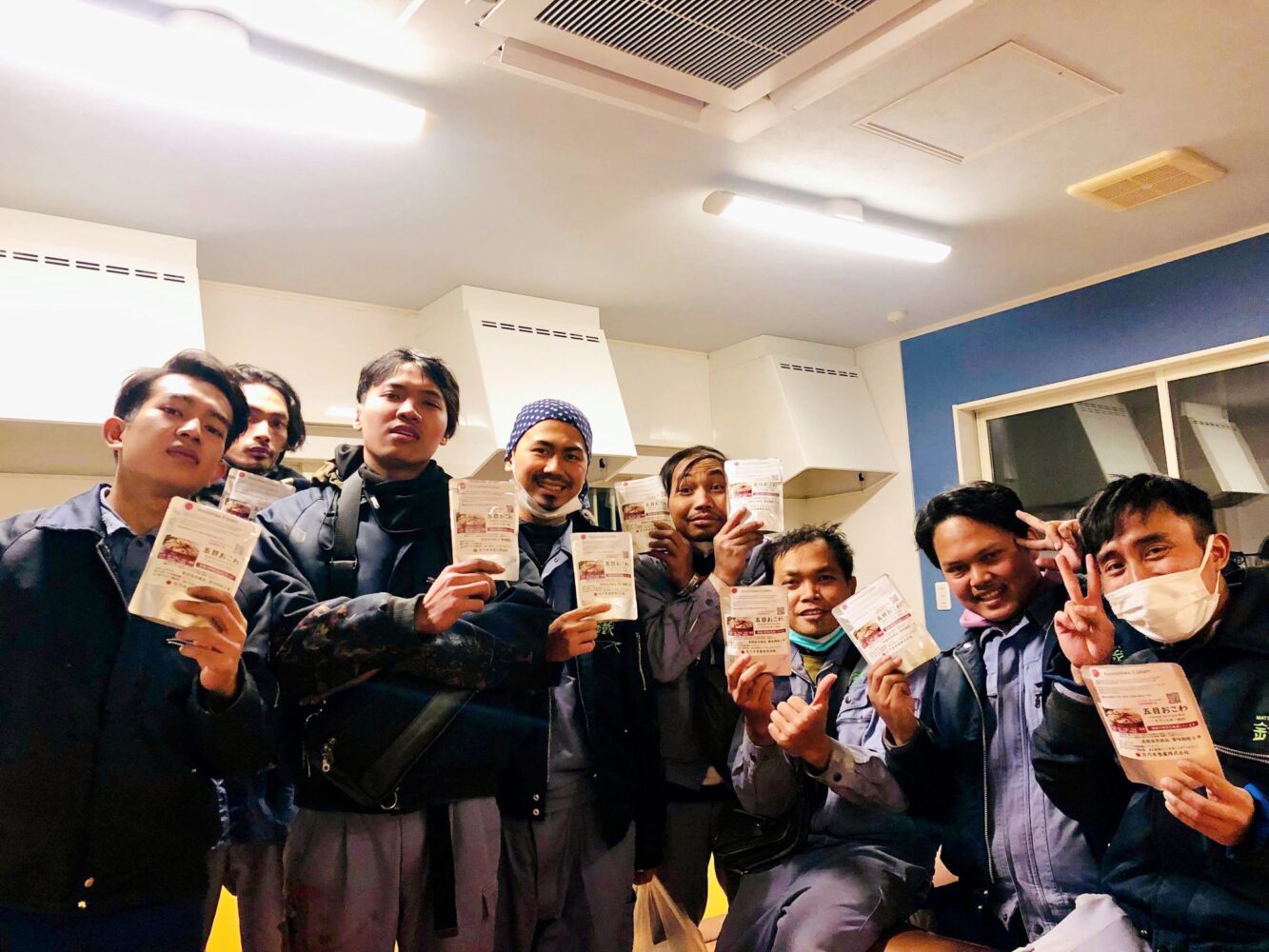
What is Gomoku Okowa?
Okowa (おこわ) is a Japanese rice dish made using steamed glutinous rice mixed with different vegetables or meats. And Gomoku Okowa is one of its varieties, with various ingredients such as burdock root, carrot, or shiitake mushroom.
This dish may be unknown globally compared to sushi, ramen or soba noodles. Most people outside Japan will have access to Japanese food through Japanese restaurants and such. And I think it is more of a home-cooked meal, which usually not served at restaurants.
I hope that this donation will also be a chance for the Indonesian trainees to learn about new Japanese food.
Feedback of the Indonesian Interns
“It’s soft, so good”, “It’s simple, I want to try this again. Where can I buy it?”—these are some of their feedbacks. I’m glad they liked it!
There was also feedback that say they were not so good with the burdock root smell. This could be because they are not familiar with it.
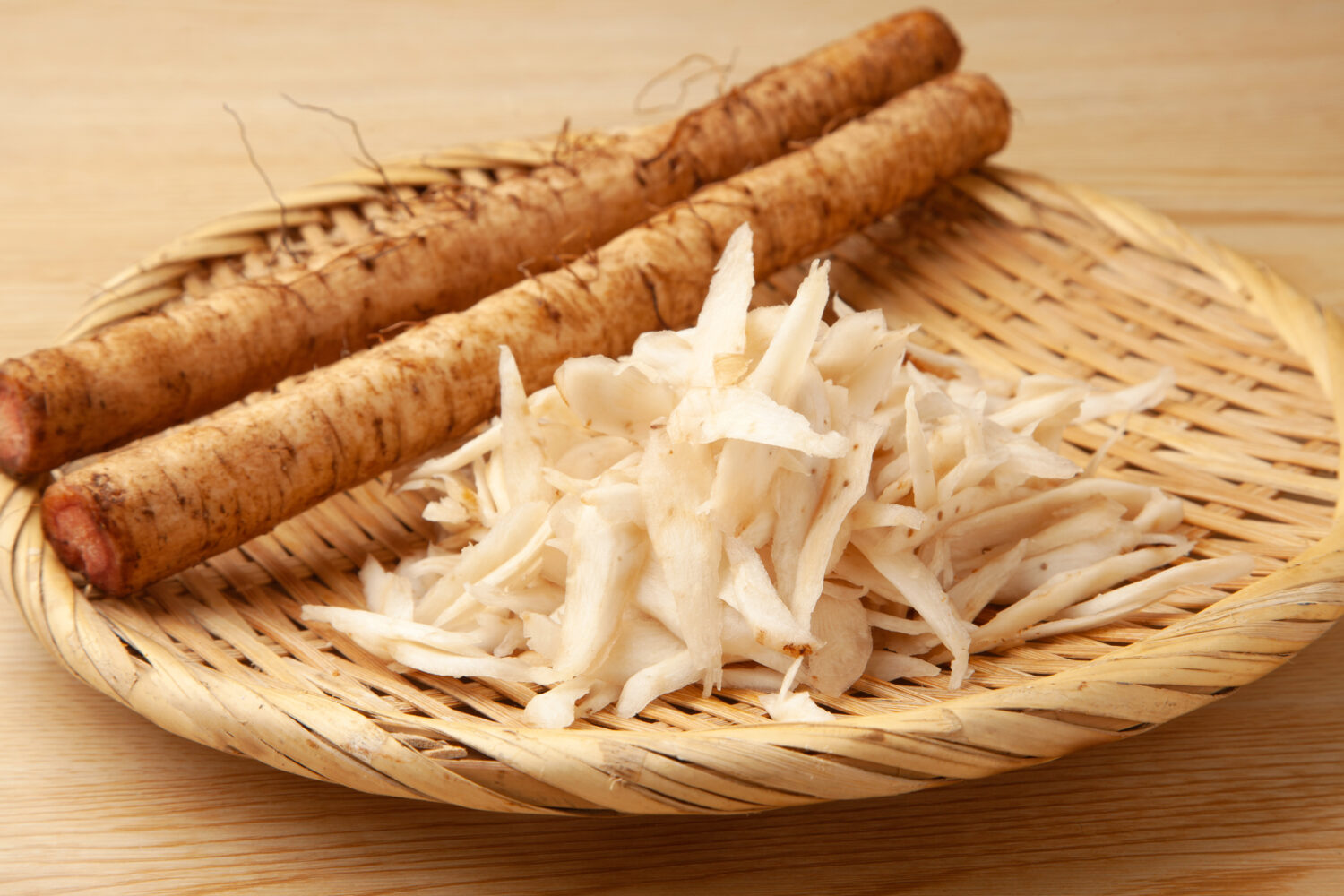
Burdock root is a root vegetable usually found in North Asia or Europe, so you can find it easily in Japan, and it is used a lot in Japanese food. For Southeast Asian countries, such as Indonesia, it’s hard to find it and they don’t really use it in their food.
Even in Malaysia, I have never seen burdock root sold in supermarkets as I grew up. I didn’t even know its name until I came to Japan.
Let’s look from a language viewpoint.
In Bahasa Indonesia (Indonesian language), they call burdock root “Akar* Burdock” or just “Gobo”. “Akar Burdock” uses the English word “Burdock” as it is, while “Gobo” is a Japanese word. We can see that the Indonesian language loans the word from other languages, as it doesn’t have an exact word for the vegetable itself.
*Akar means root in Indonesian and Malay language.
As such, you can imagine that the Indonesian interns may not have much access to burdock root, making it quite foreign to them. So I get it how some people may not like the smell.
Thank you to MATSUYAMA KOZAI for sharing the feedback of Indonesian interns who ate the food. We hope the rest of the interns, who haven’t tried it yet, will enjoy the food as well.
Related Article:
・Mosque at factory, Strong ties of Matsuyama Kozai-Indonesia
・Offer Halal Japanese Food: Hinomoto Shokusan Total Adherence
We have a network of Japanese companies keen to expand into the Halal market in Malaysia & Indonesia.
If you are interested in connecting with sustainable technology companies in Japan, simply JOIN the network from below. We will match the right one for you!


